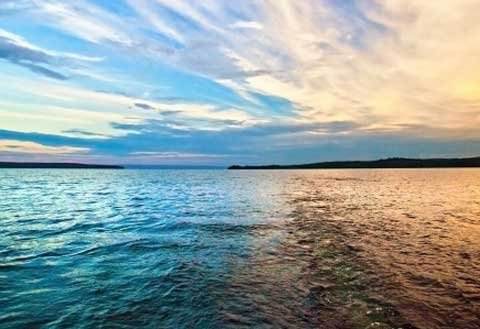Water is so vital to us that it is easy to overlook that all but the smallest fraction of the water on Earth is poisonous to us—deadly poisonous—because of the salts within it.

Take a lot of salt into your body and your metabolism very quickly goes into crisis. From every cell, water molecules rush off like so many volunteer firemen to try to dilute and carry off the sudden intake of salt. This leaves the cells dangerously short of the water they need to carry out their normal functions. They become, in a word, dehydrated. In extreme situations, dehydration will lead to seizures, unconsciousness, and brain damage. Meanwhile, the overworked blood cells carry the salt to the kidneys, which eventually become overwhelmed and shut down. Without functioning kidneys you die. That is why we don't drink seawater.











